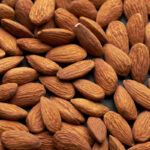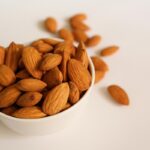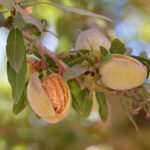IBISWorld projects modest growth for Australian produce exports

Free trade agremeents (FTA) signed with China, Japan and South Korea in 2014 and 2015 have led to a surge in fresh produce exports from Australia, but a recent IBISWorld forecast estimates the rate of growth may be slightly lower in the years to come. 
IBISWorld industry analyst Sam Johnson highlighted the segment of 'Citrus, banana and other fruit growers' have seen annualized export growth of 19.9% over the past five years, but that rate is likely to drop to 1.8% over the next five years.
It is worth noting bananas are an insignificant part of this category as far as exports are concerned, while nuts such as almonds have played an important role.
"Almonds are included in the industry, and have far outpaced even this strong performance," Johnson said.
"While FTAs have been partly responsible for the increased almond trade since 2014-15, favourable timing also played a part.
"Significant almond planting in 2006 and 2007 increased domestic production over the past three years. Concurrently, water scarcity in California, the largest global almond supplier, created a shortage in international markets, driving up the world price of almonds," he said.
He added returns in Australia had also been boosted by the Australian dollar's depreciation.
"Supply links established between Japan, China and Australia are projected to sustain the presence of Australian almonds in Asia as Californian almond harvests recover," he said.
Other high-performing commodities in the segment include table grapes and mangoes.
"Furthermore, exports of table grapes to China and Japan have skyrocketed, despite the sizeable tariffs still imposed on these products," Johnson said.
"Table grape exports in the January to October 2015 export period surged from (AUD)$600,000 to (AUD)$6.5 million compared with the same period in 2014.
"Exporters that have proactively acquired market share in these countries since the signing of the agreements will be better positioned to reap the benefits of diminished trade costs once the tariffs are fully removed."
He said China's imports of Australian mangoes have more than doubled since early 2015. 
"Mango tariffs have declined from 15.0% to 9.0% since ChAFTA was ratified, but mangoes are still often sold at up to AUD$12.0 each in Chinese cities.
"Domestic growers have also increased production of fruits and vegetables that attract premium prices in overseas markets, such as mangoes, which are sold at substantially higher prices in China than domestically."
Johnson highlighted outdoor vegetables also benefited from the trade agreements with 8.9% annualized export growth rates over the last five years.
"Asparagus exports to Korea have driven some of this growth, with a substantial rise in value of 123.0% from 2014 to 2015. Tariffs of 27.0% were reduced to 9.0% by 2015, and were removed entirely in January 2016," he said.
"The FTAs have provided expansion opportunities for traditional export industries, and have opened areas in which Australia had previously been uncompetitive and without market share.
" Over the next five years, exports for outdoor vegetable growers, and citrus, banana and other fruit growers are projected to continue increasing, at 3.7% and 1.8%, respectively."
Photo: www.shutterstock.com









































